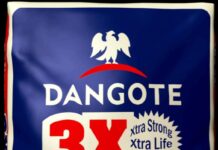Conversation with Azu
I met him three or four years ago. We were introduced by a mutual friend sickened by the story. What struck me about this man who I was meeting for the first time was his calmness, in spite of the story of cheating and betrayals, which he would later share.
Alfred Irabor Okoigun, son of a farmer, was born with the proverbial wooden spoon. He soon learned, however, that it is not the spoon that life hands you, but what you make of it that counts. After scrapping through college, he enrolled in the Petroleum Training Institute (PTI), Warri, as a pioneer student.
Nigeria was planning to join OPEC at the time but didn’t have the middle-level manpower to manage its oil and gas industry. To compound a difficult situation, a few years after PTI took off, the Murtala-Obasanjo military government nationalized the assets of British Petroleum, in an audacious face-off with the West over apartheid, making the need for competent, local middle-level manpower, even more urgent.
The Federal Commissioner for Mines and Power at the time, Alhaji Shettima Ali Monguno, scrambled to put the government’s house in order in response to the backlash of the nationalization.
Monguno visited PTI and told 12 young Nigerian engineering students that the country was offering them a scholarship to study engineering in Italy and that the future of Nigeria’s oil and gas sector depended on them. Okoigun was one of the students. And that offer was the turning point for him.
The scholarship not only gave him the opportunity to become a mechanical engineer, it also opened the door for him, at 25, to set up Arco Petrochemical Engineering Group, a local content company started with very little capital but is now worth well over $30million, with four subsidiaries and generations of competent middle and senior-level local staff, which would have made Monguno proud.
But the empire is striking back. After nearly 40 years of its existence, Arco is facing an existential threat. Where patriotic zeal stirred up government support in the past, there’s only lip service available today.
Every business has its ups and downs and Arco has had more than its fair share of both. One down moment that has stubbornly refused to look up started as what Okoigun thought was a blessing in disguise – at least in the beginning.
In 2006, Arco got a contract to maintain Agip’s gas plants and turbines in Delta and Rivers States, which was a good thing and a big deal for a local company then. Originally, the contract was exclusively awarded to Arco, although General Electric, the US multinational, had played a significant role in setting up the plant.
But by some jiggery-pokery and in spite of a directive from NNPC to the contrary, Agip arm-twisted Arco to accept the position of junior partner to GE against the provisions of the local content law.
Arco protested initially, but like most local firms happy to be content with half a loaf, instead of losing out completely, the company plunged head-on into the contract. As a show of good faith, Okoigun told me that at the height of the crisis in the Niger Delta when the expatriates fled back to their countries for their lives, his company stood firm, maintaining the barges and turbines at its own risk.
That intervention saved not only the life of the projects in which the government had invested over $300million, it also kept alive the hopes of the communities to receive electricity and perhaps begin meaningful lives after decades of failed promises.
After the crisis, when Agip and GE expatriates returned to the site to find that vital assets were still being maintained, they were delighted – or so it seemed. In a shameless mockery of gratitude, they poached Arco staff, offering salaries and benefits beyond what the local company could afford. GE refused to renew Arco’s contract and, instead, initiated a termination.
The story of Arco’s vanishing half loaf had only just begun. For nine years, General Electric was deducting a 10 percent withholding tax from Arco, whereas the contract only provided for five percent. At first, it seemed like an innocent error. At least that was what Okoigun thought then.
But how could it be, the tax law was clear, and the total illegally deducted sum of money involved in dollars, euros and naira components, is estimated at nearly N3billion. That’s not the kind of money to mistakenly deduct for nine straight years. Except, of course, it was an intentional mistake to kill the victim.
And there have been victims. Not struggling casualties on a danger list hoping to recover soon. According to Okoigun, at least five former staff of Arco have died waiting to collect their benefits.
The company, I’m told, could not pay because its finances have been impaired by GE’s refusal to refund illegally deducted taxes, even taxes that it agreed during reconciliations up till June this year had been wrongfully deducted.
It sounds like a weird, twisted tale, or something that if it was remotely true, the accused, especially a multinational like GE, would do everything to keep it away from the hearing of regulators, especially the Federal Inland Revenue Service (FIRS). Except that this is a true story, known to FIRS like the back of its own hand.
From records in the last two years, FIRS has gone from indifference to helplessness at the best of times. And lately, it has vacillated between confusion and compromise.
Apart from a number of meetings, FIRS has written at least three times to GE either to inform the multinational that it was wrong to deduct 10 percent, to ask it to show proof of withholding tax credit notes if at all they have it or to ask the company to refund to Arco taxes wrongfully deducted.
One of the letters was signed by former Chairman Tunde Fowler, while another strong-worded one, giving GE an ultimatum of seven days was issued in January. But all, including another one written only two weeks ago asking GE to apply for a refund with proof of WHT credit notes, have fallen on deaf GE ears.
Impotence in this matter is not only restricted to FIRS. The Ministry of Labour and Productivity has twice hosted meetings this year at which GE, Arco, FIRS, and the unions were present, to resolve the matter. The Ministry of Labour even followed up with a communique begging GE to refund what it illegally deducted, but GE is not budging.
The major unions – NUPENG and PENGASSAN – have threatened to strike until they lost their mojo. They are just as impotent today as other mediators before them.
So, why not go to court, Okoigun has been asked many times, a question which I also asked him? Because that is exactly what GE wants. That is what GE has been playing for all these years.
Through delays, prevarication, subterfuge, and sabotage, GE has been angling for litigation, without saying so, knowing that they can lock down the case for as long as it takes to do the right thing; knowing that once the matter is in court, they would fend off any sensible intervention, and hopefully, frustrate the other party.
In the epic battle between many local and foreign firms, the local Davids are hardly ever up to the wiles, much less the financial muscle and staying power of the foreign Goliaths.
What BP and Barclays may have lost to nationalization in the late 70s, the GEs of today are getting back a hundredfold, in many instances, observing the Local Content Act only in the breach. It’s a game at which they have proven to be the master. They have the means to give the law a blind eye and they are never afraid or shy to use them.
And so far, not Fowler at the height of his tenure; not Chris Ngige after years of negotiation; not countless men of power that Okoigun has met; and certainly not newspaper editorials or pressure from the unions have made any difference to GE’s intransigence.
But GE’s bluster didn’t work in France. The French government fined the company 50million euros for creating just 25 out of the 1,000 jobs it promised to create in 2015 when it used the offer as a subterfuge to take over Alstom’s energy business.
Also, a report by Wall Street Journal said Harry Markopolos, who famously exposed Bernard Madoff’s Ponzi scheme, accused GE of hiding $38billion in potential losses, adding that, “The company’s cash and debt position were far worse than it had disclosed.”
GE’s shares have taken a serious beating in recent years over the global energy crisis as it has for its poor business decisions and practices. Yet while its stock is falling elsewhere, it is rising in Nigeria where the market responds not to logic or information, but to crookery and subterfuge.
According to recent reports, GE is saying, among many other tongue-in-cheek things it has said over the years, that it has handed over the liability in the dispute with Arco to one Baker Hughes, a so-called successor company unknown to the original contract. That was after it said it was unwilling to reopen the issue because it was status-barred before a flood of complaints dragged it back to its senses.
Listening to Okoigun, one sometimes gets the feeling that FIRS’ self-sabotaging impotence is because it sees the over-deduction more as a wrong against Arco than as a wrong against the Service. If the multinational has paid the five percent due to FIRS – and that’s a big if – then Arco can carry its own cross.
It’s a travesty hardly permitted elsewhere. And everyone seems to agree, until you ask, who will bell the cat?
Ishiekwene is the Managing Director/Editor-In-Chief of The Interview
Follow the Neptune Prime channel on WhatsApp:
Do you have breaking news, interview request, opinion, suggestion, or want your event covered? Email us at neptuneprime2233@gmail.com





